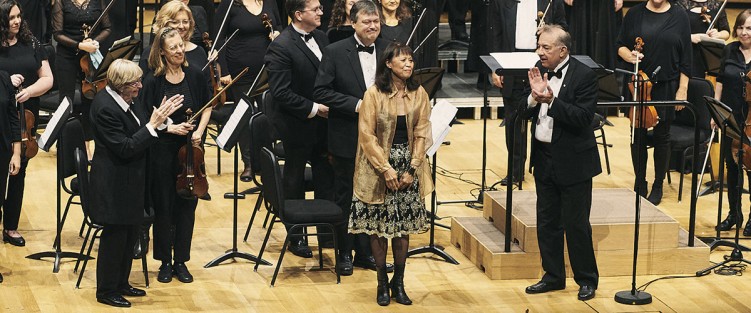 The recent announcement of composer Alexina Louie as the winner of the 2019 Molson Prize in the Arts, the first time the $50,000 prize has been awarded to a female composer, signalled something of a sea change in the world of Canadian music that’s been developing gradually.
The recent announcement of composer Alexina Louie as the winner of the 2019 Molson Prize in the Arts, the first time the $50,000 prize has been awarded to a female composer, signalled something of a sea change in the world of Canadian music that’s been developing gradually.
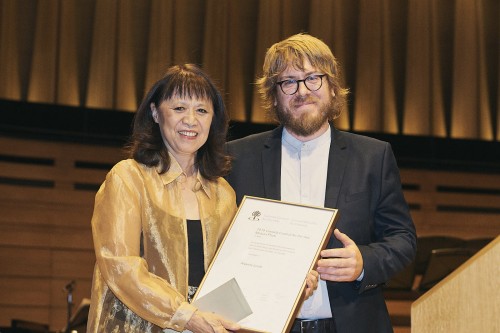 The prize was presented to Louie by the Canada Council for the Arts, on stage at Esprit Orchestra’s season-opening concert at Koerner Hall this past October. “One of Canada’s most highly regarded and most often performed composers, performed and broadcast internationally,” the citation read. “Her commissioned works range across all musical genres, including ballet and opera.” It’s an award that recognizes Louie’s place at the forefront of the many women who have propelled themselves to positions of significant influence in Canada’s classical music community through both their activism and artistic achievements.
The prize was presented to Louie by the Canada Council for the Arts, on stage at Esprit Orchestra’s season-opening concert at Koerner Hall this past October. “One of Canada’s most highly regarded and most often performed composers, performed and broadcast internationally,” the citation read. “Her commissioned works range across all musical genres, including ballet and opera.” It’s an award that recognizes Louie’s place at the forefront of the many women who have propelled themselves to positions of significant influence in Canada’s classical music community through both their activism and artistic achievements.
In a blog on the Esprit Orchestra website Louie states: “I’m proud of my large catalogue of wildly diverse compositions. They range from pedagogical piano pieces for children, a full-length main stage opera, my ‘ground-breaking’ comedic five-minute made-for-TV operas (created with my collaborators, director Larry Weinstein and librettist Dan Redican), to more unconventional, leading-edge compositions. In my pieces I aim to create something captivating, magical, touching, inspiring. It doesn’t matter if the work is meant for a young piano student or the audience of National Ballet of Canada, I cannot be satisfied with my work unless I aim high. I also avoid writing the same piece over and over, a trap that is easy to fall into. However, pushing boundaries and propelling yourself into new personal artistic territory can be frightening. The compositions listed in my catalogue span many decades. You can hear my musical voice taking shape in the earlier pieces. There are works from those formative years that still affect me deeply. They still ring true after so many decades.” And in a subsequent conversation Louie told me that the Molson Prize is especially meaningful to her because nominees come from all the arts, not just music. “When you look at the list of past winners, it spans the full range of artists in Canada from Alice Munro, Glenn Gould, Mary Pratt to Bill Reid, Margaret Atwood and of course, Alex Pauk, and so on.”
The Molson Prize is just one recent recognition of Louie’s prominence. Just a few days prior to her receiving it, she was also presented the Arts and Letters Award by the Arts and Letters Club of Toronto. John Stanley, the club member who nominated her for the award wrote: “Her work has been performed by all of Canada’s important symphony orchestras, locally and on tour. In addition, her works have been performed in the United Kingdom, Germany, the United States as well as in China. She was recently commissioned by the Toronto Symphony Orchestra, the Orchestre symphonique de Montréal, and the National Arts Centre Orchestra to write a Triple Concerto for the orchestra’s concertmasters, a task which she fulfilled with great mastery and verve. The concerto was performed in all three cities in 2017/18. In 2019, she was the featured composer at Finding a Voice, a festival devoted to women composers, held in Cork, Ireland. This year, her work was also performed by the Ensemble symphonique Neuchâtel, Switzerland. The Canadian writer Emily-Jane Hills Orford has described Ms. Louie’s work’s ‘ethereal quality [that] transcends both time and place and leaves the audience, as well as the performers, with a distinct feeling of being in a trance, a dream. The unique sounds and colours of Alexina Louie’s music enlighten the listener, allowing the music, the performer and the audience to experience an idea, to gain knowledge of an emotion.’”
The Arts and Letters Award ceremony included performances of her vocal and piano music by soprano Caroline Stanczyk and pianist Morgan-Paige Melbourne; her accordion music, performed by Matti Pulkki; as well as excerpts from her made-for-TV operas, all introduced by the composer herself. She made the point that, though she’s a thoroughly Canadian composer, her musical voice is heard and recognized around the world. She told me: “In my desire to communicate and express my message, I’ve striven for a universality in my musical language.”
It should be noted here that I am not an unbiased observer! On a personal level, I’m proud of the role I played in encouraging Louie’s early development in the 1980s, having arranged her very first commission through CBC Radio, as well as the broadcasts of her works on the national CBC network program Two New Hours. These broadcasts introduced Louie’s music to a national audience through the CBC’s Radio Two network. Our recordings of her music in concerts were also disseminated internationally through the International Rostrum of Composers and the network of international program exchange that CBC had with organizations like the European Broadcasting Union.
I also produced her very first recordings on CD: clarinetist James Campbell and percussionist Beverley Johnston recorded her Cadenzas for Centrediscs in 1986, and the 2019 Governor General’s Performing Arts Award-winning pianist Louise Bessette recorded Music for Piano with me for CBC Records in 1993. Three years later I also produced a CBC Records CD with accordionist Joseph Macerollo that included the first recordings of Louie’s Earth Cycles for solo accordion, as well as her trio for accordion, harp and percussion, Refuge, the work I had commissioned in 1980 on the occasion of her return to Canada after ten years living in California.
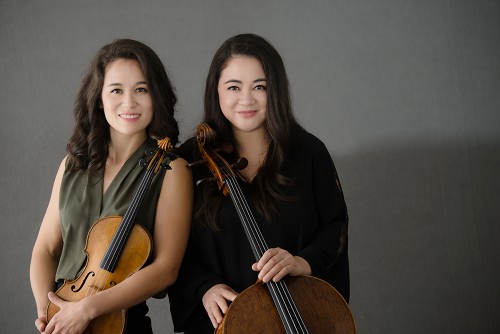 I’ve also recently collaborated with another woman at the forefront of Canadian musical creativity, cellist Rachel Mercer, along with her violinist sister, Akemi Mercer-Niewöhner: their new recording of six works by Canadian women has now been released on the Centrediscs label. A few years in its making, the CD, Our Strength, Our Song, combines three of Mercer’s recently commissioned duos for violin and cello with three 20th-century Canadian duos.
I’ve also recently collaborated with another woman at the forefront of Canadian musical creativity, cellist Rachel Mercer, along with her violinist sister, Akemi Mercer-Niewöhner: their new recording of six works by Canadian women has now been released on the Centrediscs label. A few years in its making, the CD, Our Strength, Our Song, combines three of Mercer’s recently commissioned duos for violin and cello with three 20th-century Canadian duos.
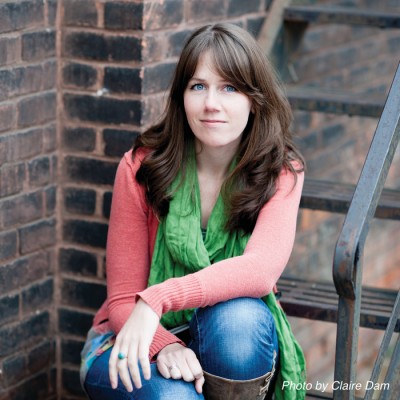 The title of the recording comes from one of the works on the recording – one of the last compositions by the late composer Rebekah Cummings (1980–2019) who wrote of her composition: “Our Strength, Our Song is a tribute to the empowering generational bonds between women, and the beauty of sisterhood. I was so inspired to compose for a pair of sisters (the Mercer Duo), and for two instruments that support and complement one another so perfectly – unique, yet part of the same family – like sisters.” Cummings, who was Bulgarian-Canadian, found inspiration in the traditional two-part folk singing of Bulgarian women, and writes in her notes: “These songs are a strong, common bond among the women and girls in the community, and a remarkable way in which the older generation upholds the younger and imparts wisdom, culture, values, beauty and strength. This piece is based on a short theme written in traditional Bulgarian folk-singing style, recurring but ever-evolving, tenaciously rising again despite opposition, pain and struggle. The violin and cello personify the voices of sisters across generations, sharing and cultivating this ancient, everlasting song.”
The title of the recording comes from one of the works on the recording – one of the last compositions by the late composer Rebekah Cummings (1980–2019) who wrote of her composition: “Our Strength, Our Song is a tribute to the empowering generational bonds between women, and the beauty of sisterhood. I was so inspired to compose for a pair of sisters (the Mercer Duo), and for two instruments that support and complement one another so perfectly – unique, yet part of the same family – like sisters.” Cummings, who was Bulgarian-Canadian, found inspiration in the traditional two-part folk singing of Bulgarian women, and writes in her notes: “These songs are a strong, common bond among the women and girls in the community, and a remarkable way in which the older generation upholds the younger and imparts wisdom, culture, values, beauty and strength. This piece is based on a short theme written in traditional Bulgarian folk-singing style, recurring but ever-evolving, tenaciously rising again despite opposition, pain and struggle. The violin and cello personify the voices of sisters across generations, sharing and cultivating this ancient, everlasting song.”
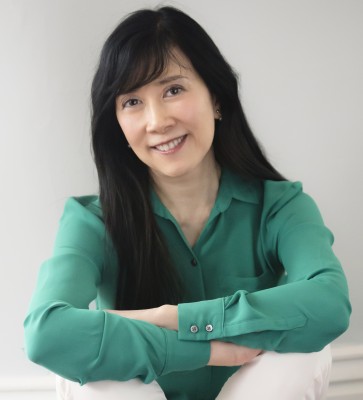 This new recording also includes commissioned works by Alice Ho – her Kagura Fantasy, a new duo inspired by a Japanese fertility ritual – and by Jocelyn Morlock – Serpentine paths, depicting life’s twisting pathways. The pre-existing duos are by Violet Archer (Four Duets for Violin and Cello,) Jean Coulthard (Duo Sonata for Violin and Cello,) and Barbara Monk Feldman (Pour un nuage violet.) Rachel Mercer told me she feels Our Strength, Our Song – the recording – is “relevant to the current time we are in; celebrating and supporting the power and liberated expression of women. In this case we also hope our recording encourages others to play these older works that have been rarely performed.” It’s a fascinating mix of contrasting styles and approaches, all performed with verve and brilliance by this outstanding sibling duo. It’s a production I’m particularly pleased with.
This new recording also includes commissioned works by Alice Ho – her Kagura Fantasy, a new duo inspired by a Japanese fertility ritual – and by Jocelyn Morlock – Serpentine paths, depicting life’s twisting pathways. The pre-existing duos are by Violet Archer (Four Duets for Violin and Cello,) Jean Coulthard (Duo Sonata for Violin and Cello,) and Barbara Monk Feldman (Pour un nuage violet.) Rachel Mercer told me she feels Our Strength, Our Song – the recording – is “relevant to the current time we are in; celebrating and supporting the power and liberated expression of women. In this case we also hope our recording encourages others to play these older works that have been rarely performed.” It’s a fascinating mix of contrasting styles and approaches, all performed with verve and brilliance by this outstanding sibling duo. It’s a production I’m particularly pleased with.
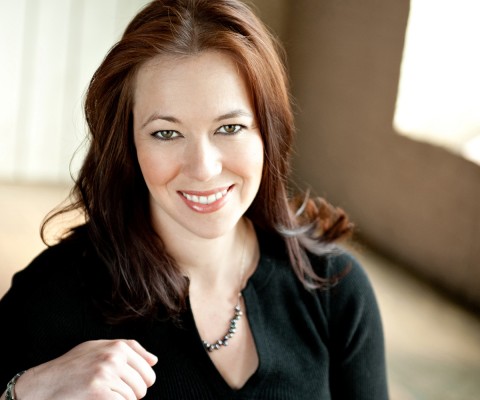 Rachel Mercer has been commissioning new works since 2010, when she asked Dundas, Ontario-composer Abigail Richardson-Schulte to compose a piece for the Mercer-Park duo (with pianist Angela Park.) The resulting work, Crossings, remains in their repertoire and is regularly programmed on recitals. Her most ambitious project to date was the creation of 14 new works (by seven women and seven men from every region of Canada), commissioned through her quartet, Ensemble Made in Canada. Titled the Mosaïque Project, it was inspired by a desire to reflect the diverse regions of Canada in music and media, and consists of three components: the 14 commissioned piano quartets; a national concert tour extending through the 2018/2020 seasons; and a specially designed website that showcases audience-generated artwork inspired by the musical commissions. There is now an impressive web presence to explore at mosaiqueproject.com, involving “artists from across Canada including performers, composers, visual artists and web designers, in order to create an evolving artistic work that can be experienced by audiences, participants and online visitors throughout our country and internationally. Our aim is to celebrate the diversity and richness of Canada through the eyes and ears of its people.”
Rachel Mercer has been commissioning new works since 2010, when she asked Dundas, Ontario-composer Abigail Richardson-Schulte to compose a piece for the Mercer-Park duo (with pianist Angela Park.) The resulting work, Crossings, remains in their repertoire and is regularly programmed on recitals. Her most ambitious project to date was the creation of 14 new works (by seven women and seven men from every region of Canada), commissioned through her quartet, Ensemble Made in Canada. Titled the Mosaïque Project, it was inspired by a desire to reflect the diverse regions of Canada in music and media, and consists of three components: the 14 commissioned piano quartets; a national concert tour extending through the 2018/2020 seasons; and a specially designed website that showcases audience-generated artwork inspired by the musical commissions. There is now an impressive web presence to explore at mosaiqueproject.com, involving “artists from across Canada including performers, composers, visual artists and web designers, in order to create an evolving artistic work that can be experienced by audiences, participants and online visitors throughout our country and internationally. Our aim is to celebrate the diversity and richness of Canada through the eyes and ears of its people.”
Mercer’s most recent commission is a cello concerto by pianist/composer Stewart Goodyear. She tells the story like this: “In 2015, I received an email from Stewart Goodyear, saying that he wanted to write me a cello concerto! We’ve known each other since we were 13 and playing in a trio together at the RCM Toronto (with Susanne Hou) and had played together a couple of times since, but this was completely out of the blue to me. I couldn’t believe it, but he said he was already sketching ... forward to 2016 ... I didn’t hear more about the concerto, but ended up playing the Canadian premiere of his piano quartet with Ensemble Made In Canada at Ottawa Chamberfest ... finally in 2017 NACO [National Arts Centre Orchestra] was interested in programming the cello concerto and we received funding from the Ontario Arts Council and a research project at UOttawa. It will be a co-commission between me and NACO. I’m looking forward to seeing the score very soon and the premiere will happen on February 14, 2020 with my orchestra [National Arts Centre Orchestra].”
For Mercer, as she told me, her desire to commission new repertoire is because “It feels like the closest I can come to being part of a creation, besides the interpretive creation that happens on stage.”
The composer, Louie, and the interpreter, Mercer, are just two examples of women who have been steadily changing the direction of the creative tide in the creative branch of the Canadian classical music community. Others come easily to mind, such as the prolific collaborations I witnessed over the years between the late composer Ann Southam (1937-2010) and pianists Eve Egoyan and Christina Petrowska Quilico.
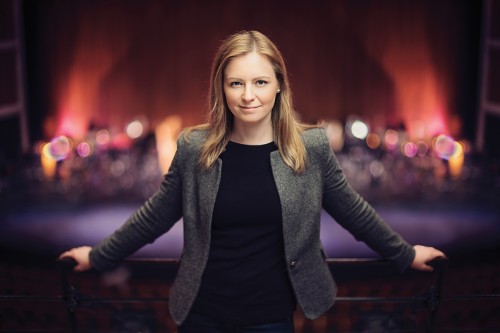 Over the span of more than 20 years, I have been involved in the production of 14 CDs of Southam’s various and varied piano compositions. And the current collaboration between Hamilton Philharmonic (HPO) music director, Gemma New, and HPO Composer-in-Residence, Abigail Richardson-Schulte, seems to have exciting potential through their new initiative called the Composer Fellowship Program. In this program, emerging composers can apply to work with the orchestra. Richardson-Schulte says “Gemma is a great supporter of contemporary Canadian music at the HPO and I’m so pleased that we are able to commission, present, and mentor. We have a practically all-Canadian series (Intimate and Immersive), which is a larger instrumentation version of our previous What Next Festival (which was also Canadian new music). In addition to the Composer Fellowship, we have three main stage premieres by women this season – me, Alice Ho and Juliet Palmer. Gemma is conducting all of our new music at the HPO which shows her dedication to it.”
Over the span of more than 20 years, I have been involved in the production of 14 CDs of Southam’s various and varied piano compositions. And the current collaboration between Hamilton Philharmonic (HPO) music director, Gemma New, and HPO Composer-in-Residence, Abigail Richardson-Schulte, seems to have exciting potential through their new initiative called the Composer Fellowship Program. In this program, emerging composers can apply to work with the orchestra. Richardson-Schulte says “Gemma is a great supporter of contemporary Canadian music at the HPO and I’m so pleased that we are able to commission, present, and mentor. We have a practically all-Canadian series (Intimate and Immersive), which is a larger instrumentation version of our previous What Next Festival (which was also Canadian new music). In addition to the Composer Fellowship, we have three main stage premieres by women this season – me, Alice Ho and Juliet Palmer. Gemma is conducting all of our new music at the HPO which shows her dedication to it.”
David Jaeger is a composer, producer and broadcaster based in Toronto.



